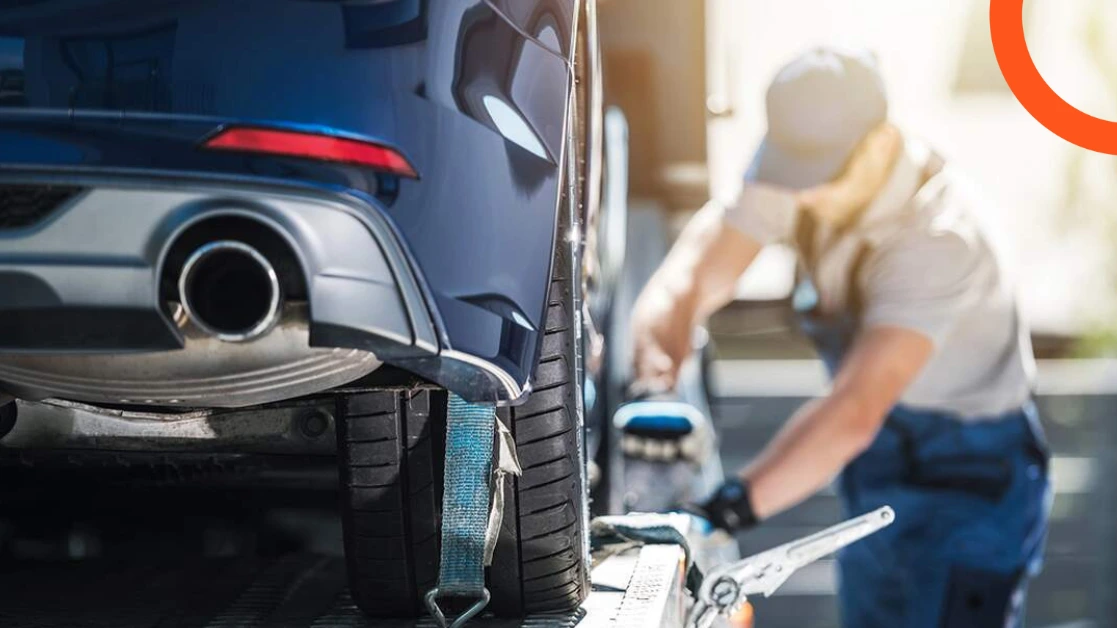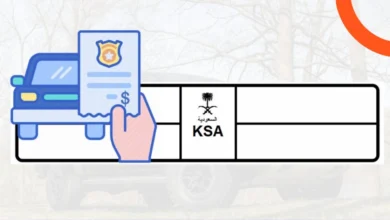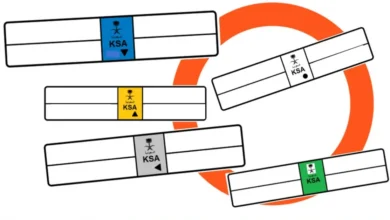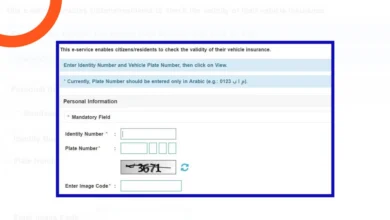Motor Vehicle Periodic Inspection in KSA, Complete Guide
Vehicle periodic inspection is a vital process in evaluating the overall condition and performance of your car. In Saudi Arabia, it is mandated by the General Traffic Department to carry out this inspection annually to ensure road safety and minimize the risk of accidents. In this guide, we’ll provide a comprehensive overview of all the essential details and frequently asked questions surrounding vehicle periodic inspection in Saudi Arabia, helping you stay informed and prepared for your next inspection.
Browse Certified and Inspected Used Cars With Over 200 Checkpoints
What is the Periodic Vehicle Inspection?
The periodic vehicle inspection in Saudi Arabia is a crucial preventative measure that every car owner must complete regularly, following the guidelines set by the General Traffic Department. This inspection takes place at certified stations equipped with the necessary tools and expertise to thoroughly check the vehicle’s condition. If any issues or defects are found during the inspection, the owner will be instructed to address them before a technical inspection certificate can be issued, ensuring the vehicle’s safety and compliance with regulations in Saudi Arabia.
The Importance of Periodic Vehicle Inspection
It is a crucial step to ensure both the safety of vehicles and the well-being of the environment. The General Traffic Department in Saudi Arabia mandates these inspections because of the numerous benefits they provide to vehicle owners and the broader community. Regular inspections play a significant role in maintaining vehicle performance, ensuring safety on the roads, and contributing to environmental protection. This process is vital for upholding high standards of safety and quality in the Saudi automotive landscape, benefiting both individuals and society at large. The importance of periodic vehicle inspection in Saudi Arabia can be summarized as follows:
Maintaining the Efficiency of the Vehicle
Regular vehicle inspections play a crucial role in maintaining the efficiency of your car. By detecting potential issues early on, the periodic technical inspection helps address problems before they become more serious, ultimately extending the lifespan of the vehicle and reducing future maintenance costs. Additionally, regular check-ups ensure that your car continues to perform optimally over time, contributing to a safer and smoother driving experience.
Ensuring the Safety of Drivers and Passengers
Periodic vehicle inspections play a critical role in ensuring the safety of drivers and passengers in Saudi Arabia. By conducting thorough technical checks, potential mechanical issues or defects that could lead to accidents are identified and addressed, helping to prevent dangerous situations on the road. This proactive approach not only protects lives but also enhances overall road safety for everyone. Through regular inspections, the risk of accidents caused by vehicle malfunctions is significantly reduced, contributing to a safer driving environment.
Reducing Environmental Pollution
One of the key benefits of vehicle periodic inspection in Saudi Arabia is its role in reducing environmental pollution. Through technical inspections, vehicles are checked to ensure their carbon emissions remain within the acceptable limits. This proactive approach helps to minimize harmful air pollutants, contributing to better public health and a cleaner environment. By maintaining vehicles in good condition, Saudi drivers can play an important part in preserving the air quality and promoting a healthier living environment.
Compliance With Legal Requirements
In Saudi Arabia, adhering to legal requirements for vehicle periodic inspections is essential to avoid penalties and fines for car owners. Regular inspections help ensure that vehicles meet safety standards, contributing to a safer and more organized traffic system. Staying on top of these scheduled inspections is not only a legal obligation but also a key step in promoting road safety for all drivers.
Reducing Visual Pollution
The periodic vehicle inspection in Saudi Arabia plays a crucial role in maintaining the aesthetic appeal of the country’s roads. Vehicles that are damaged or visually unfit are not allowed to pass the inspection, ensuring that only well-maintained and presentable cars remain on the streets. This practice helps keep the roads tidy and free from unsightly or deteriorating vehicles, ultimately contributing to a cleaner and more organized driving environment across the country.
Requirements for Passing the Vehicle Periodic Technical Inspection
There are several parts of the vehicle that must be checked for their safety and functionality to ensure the vehicle successfully passes the technical inspection. The certificate is only issued after inspecting the following parts:
Visual Inspection
When undergoing the vehicle periodic inspection in Saudi Arabia, the visual inspection is an essential step. This involves verifying that the details of your vehicle match its official documentation, such as the license plate number, color, chassis number, registration type, and model. Experienced professionals, with extensive knowledge in automotive mechanics, conduct the visual check. Below is a list of key vehicle parts that are examined during this phase of the inspection in Saudi Arabia:
- Engine compartment parts
- Front and rear bumpers
- Door and window handles
- Window tint level
- Condition of the vehicle’s body
- Front and rear lights, as well as indicators
- Tires
- Seats and seat belts
- Side and interior mirrors
- Windshield wipers and water sprayers
- Horn
- Steering wheel and steering column
- Brake pedal
- Front and rear windshields, along with side windows
The Underside Inspection
During this check, the vehicle’s lower components are thoroughly examined to ensure they meet the established standards set by the relevant authorities. This includes:
- Steering system
- Steering arms
- Steering box
- Suspension systems (shock absorbers / stabilizer bar)
- Brake system extensions, connections, and components
- Exhaust system
- Vehicle body
- Rust
- Oil and fluid leaks
- Engine mount / Transmission mount
- Drivetrain components (drive shaft)
- Fuel tank
- Fuel tank connections
- Tires
Exhaust Gas Emissions Test
The vehicle periodic inspection includes an exhaust gas emissions test, which measures the levels of gases emitted from the vehicle’s exhaust system. This test ensures that the emissions fall within the acceptable limits set by standard regulations.
Brake and Wheel Alignment Check
This check focuses on assessing the front wheel alignment and ensuring the brake system is functioning properly.
Headlight Intensity Test
This involves checking the alignment and brightness of the front headlights to ensure they meet the standards set by the Saudi Traffic and Safety Department.
How to Perform a Vehicle Periodic Inspection in Saudi Arabia
The inspection is conducted at dedicated stations located across the country, where either the vehicle owner or a close family member can bring the car in for assessment. Prior to the inspection, it’s recommended to thoroughly clean the vehicle. The steps to complete the inspection are simple.
Steps for Vehicle Periodic Inspection:
- Schedule an appointment at one of the certified inspection stations.
- Register your vehicle information and make the necessary payment.
- Have your vehicle inspected by the periodic inspection team.
- Receive the inspection results once the process is complete.
Validity of the Periodic Vehicle Inspection Certificate in Saudi Arabia
For new private vehicles, the first inspection is due three years after they are registered. Following this, inspections must be completed annually. Public transport and taxi vehicles undergo their first inspection after two years of registration, with subsequent yearly inspections. The inspection certificate is valid for 12 months.
You can check the validity of your inspection certificate through the following:
- The inspection sticker or certificate.
- Logging into your Absher Individuals account:
- Go to Vehicles.
- Select Services.
- Go to Vehicle Management.
- Choose your vehicle and click on More Details.
When it comes to vehicle periodic inspection in Saudi Arabia, it’s important to ensure that the inspection is completed well before the certificate expires. In certain situations, vehicle owners may choose to have their vehicles inspected even if the certificate is still valid. These situations include the following:
- When planning to travel long distances
- Before carrying out any traffic-related procedures
- When buying or selling a vehicle
- If any technical issues are detected
- To diagnose potential mechanical faults
- After repairing the vehicle from an accident
- Following major modifications to the engine, body, or paint
- For used vehicles registered in another country and intended for Saudi registration
Required Documents for Vehicle Periodic Inspection in Saudi Arabia
H2: Required Documents for Vehicle Periodic Inspection in Saudi Arabia
To complete your vehicle’s periodic inspection, you’ll need to ensure you have the following documents:
- Inspection appointment confirmation
- Vehicle owner’s ID
- Vehicle registration (original, digital, or certified copy from traffic department)
- Vehicle data sheet (printout) from the traffic department
- Original customs card for imported vehicles
- Inspection authorization via the official platform (if applicable)
Vehicle Periodic Inspection Fees in Saudi Arabia
The fees vary depending on the type of vehicle and its purpose. Below is a breakdown of the inspection and reinspection fees for different types of vehicles:
| Vehicle Type | Regular Inspection Fee (incl. VAT) | Reinspection Fee (incl. VAT) |
|---|---|---|
| Small Car | 115 SAR | 37.95 SAR |
| Motorcycle | 51.75 SAR | 17.25 SAR |
| Pickup Truck | 115 SAR | 37.95 SAR |
FAQs
Do Vehicles With Non-Saudi Plates Undergo Inspection?
Yes, any vehicle with foreign plates can be inspected at authorized stations as long as the vehicle information document is provided.
Can Imported Cars From Outside Saudi Arabia Be Inspected?
Yes, imported vehicles can be inspected upon presenting the original customs card issued when the vehicle entered the country.
Is It Mandatory to Have Emergency Equipment and a Fire Extinguisher to Pass the Inspection?
Currently, a warning is issued for regular cars regarding the absence of such equipment, but it is mandatory for heavy vehicles to have them.
Is It Required to Display the Inspection Sticker on the Vehicle?
Yes, passing vehicles must place the inspection sticker on the front windshield to avoid traffic violations by the authorities.
Can the Vehicle of a Deceased Person Be Inspected?
Yes, the legal representative of the heirs can have the vehicle inspected by presenting an official power of attorney.
Are There Fines for Delaying the Inspection?
There are no fines for delaying the inspection itself. However, failing to renew the periodic inspection certificate annually is a violation of Saudi traffic regulations and may result in fines.
Do Traffic Fines Need to Be Cleared Before the Inspection?
No, it is not required to settle traffic fines before proceeding with the periodic inspection.
And it is important to note that vehicle periodic inspection is a crucial step in ensuring your safety and the safety of others on public roads. Early detection of any vehicle issues helps guarantee its safety and extends its lifespan.





